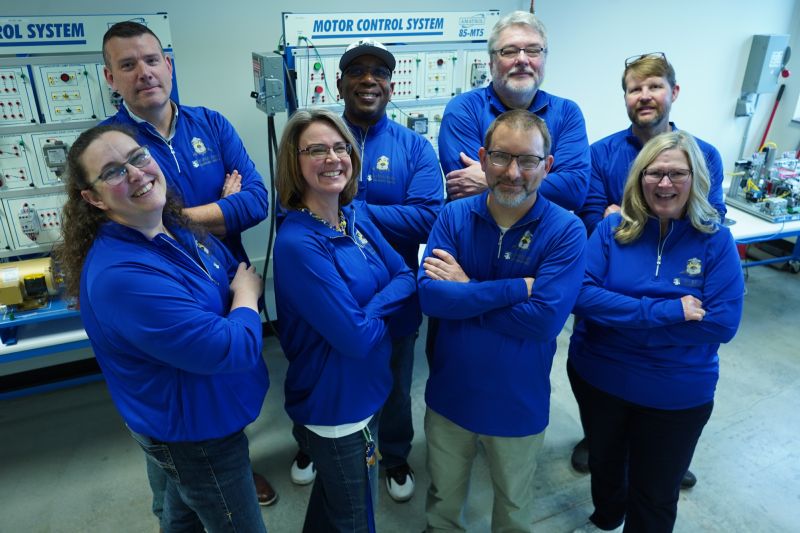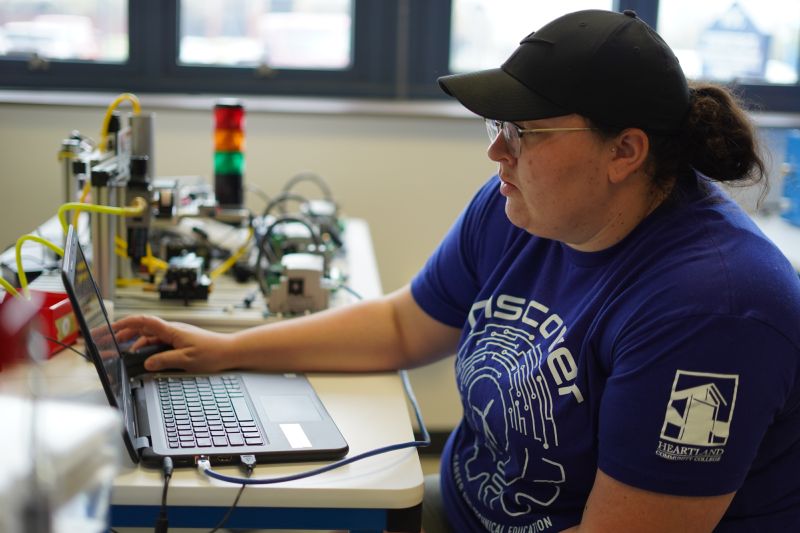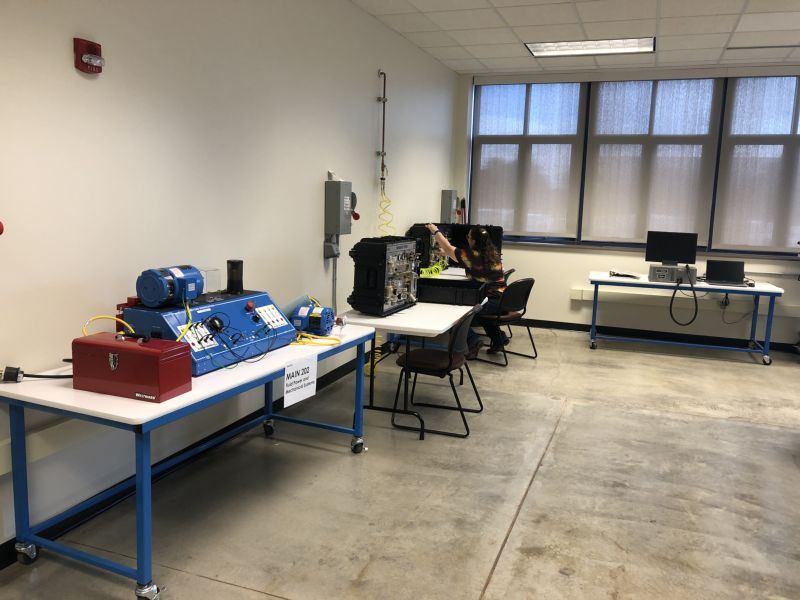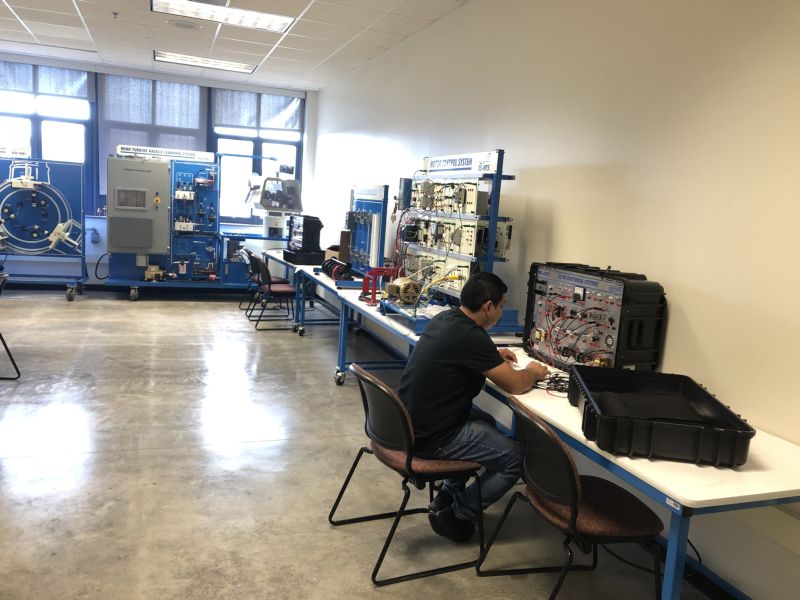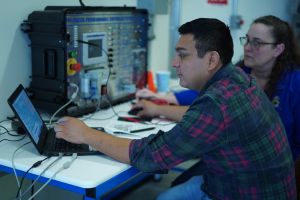

The National Science Foundation's Advanced Technological Education (ATE) program has been funding innovation at two-year colleges for over twenty years. With a focus on the education of technicians for the high-technology fields that drive our nation's economy, and strong partnerships between academic institutions and industry, ATE promotes improvement in the education of science and engineering technicians at the undergraduate and secondary school levels.
To learn more about ATE, please visit the NSF ATE program home page.
Academic programs in Industrial Technology prepare students for employment in fields such as robotics, electronics, renewable energy, and battery technology, all of which have been identified as fast-growing and high-paying opportunities for an emerging skilled workforce. The central Illinois region has identified an employment gap with more than 1000 unfilled positions for qualified workers with high-technology skills. To help meet this need, Heartland Community College intends to make the Industrial Technology program more accessible to more students. Specifically, it will revise and redesign the industrial technology courses for online instruction and offer laboratory experiences using an open-access laboratory model. The open-access laboratory model will allow students to schedule and use industrial equipment and trainers during day, evening, or weekend hours, depending on their individual needs and time constraints. In addition, the project will combine these curricular improvements with student supports, including supplemental instruction and peer mentoring. The project expects that these improvements will increase the number of students completing the Industrial Technology program.
The goal of this project is to demonstrate a new model for industrial technology education using an open-access manufacturing laboratory, flexible content delivery, and student supports to enhance student access to high-quality Industrial Technology education. To this end, Heartland Community College will dedicate 2500 square feet and additional college infrastructure to establish and maintain an open-access laboratory. The space will be augmented with trained faculty, facilitators, and peer mentors to provide supportive human interactions. The Industrial Technology faculty of Heartland Community College will revise their curriculum to allow for and support flexible learning formats that will complement an open-access laboratory. The college will also adopt a formal supplemental instruction model to give current students opportunities to become peer leaders, which will augment the leaders learning as they help other students. The flexible format will give students enhanced access to the laboratory and student support services, providing increased access for students with job and family obligations. Heartland Community College will share their model through regional and national Career and Technical Education conferences.
For more information:
Kimberly Travers (PI), Distinguished Professor of Industrial Technology ([email protected])
Chris Miller (Co-PI), Distinguished Professor of Industrial Technology ([email protected])
Jill Blair, Director of Grants ([email protected] or [email protected])
